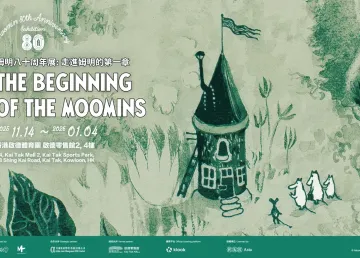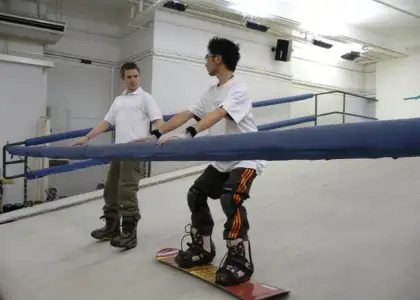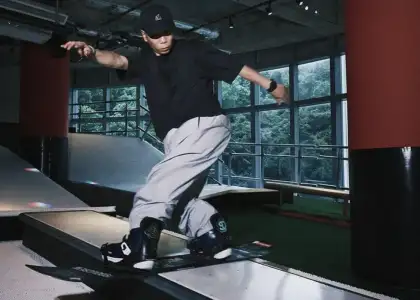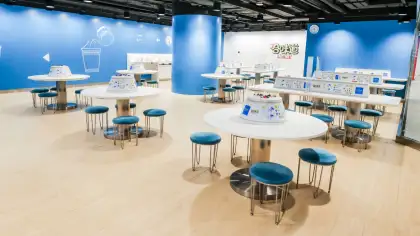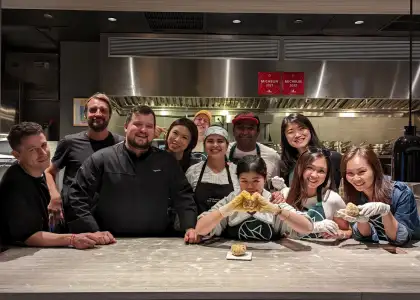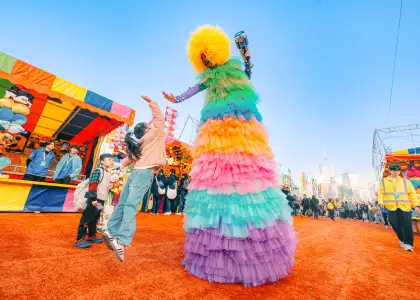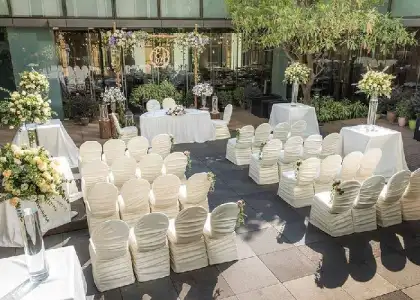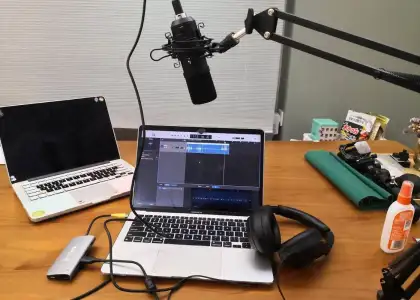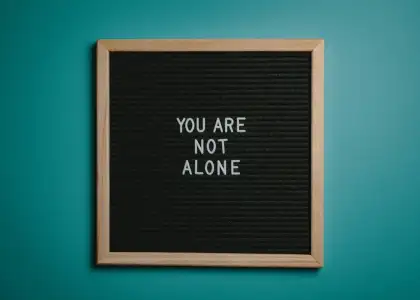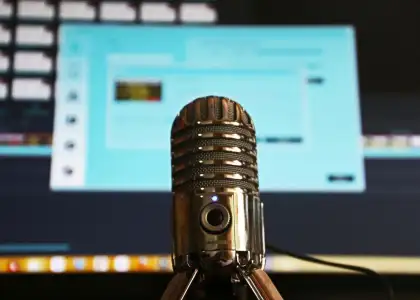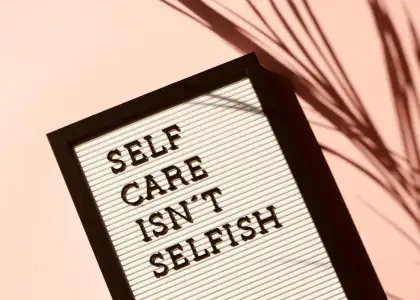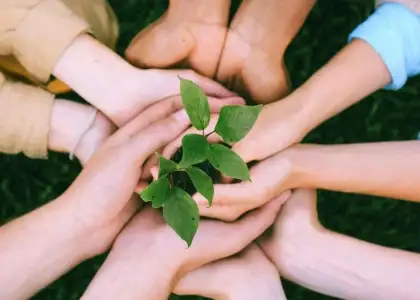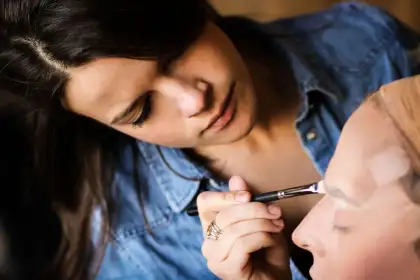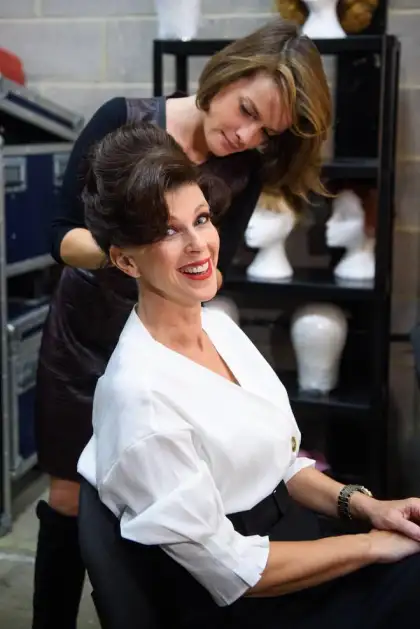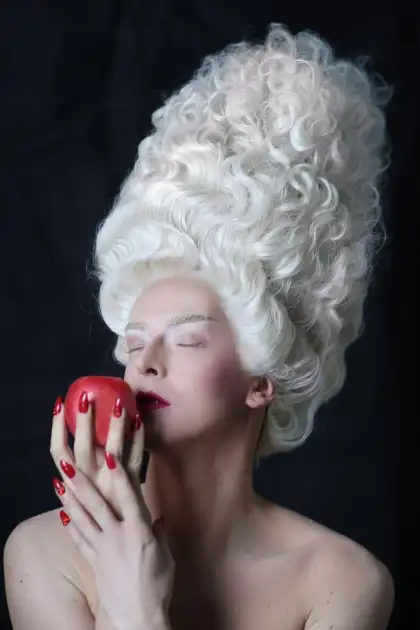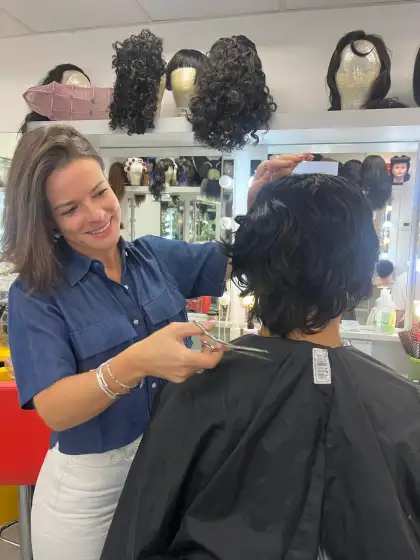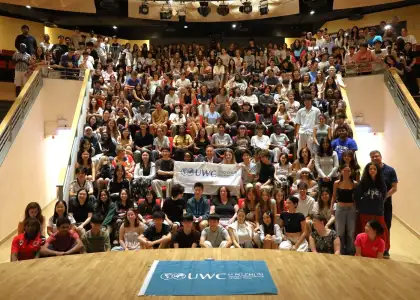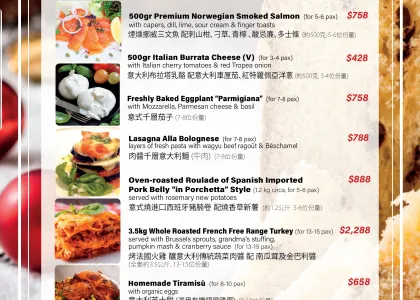Hong Kong's Mental Health Practitioners Set their Sights on 2023

As we’ve begun to settle in to 2023, listing out our goals and wants for the year, it’s important to plan on allocating some time to check in with ourselves while we continue to move forward. The Beat Asia has invited some of Hong Kong’s advocates for mental wellbeing to share their experiences with managing their own mental health, as well as to give some advice that anyone can embrace in their own lives at any time.
Joining us are Stephanie Ng, founder of mental health and body-image empowerment charity Body Banter, alongside clinical hypnotherapist and multi-hyphenate life coach Sonia Samtani. Helping to voice out from the oft-overlooked male perspective in self-care are Cado Lee and Calvin Au Yeung, both ‘Phenomenally Mo’ ambassadors who have represented the group in raising awareness for men’s health during the month of Movember.
Settle into your seat, preferably with something comforting to sip on, and join our roundtable for a dive into the importance of taking good care of yourself from the inside out!

Could you give us some insight on how you began your journey as a mental health and wellness advocate?
Steph Ng (SN): In my early teens, I experienced an eating disorder, and in my recovery journey I began to get curious about a couple of things - how my mind worked, how my mind worked with my body, and how other people experienced mental health and illness. I feel that my experiences with mental illness prompted me to revisit the fundamental things that make us human, like how we connect with one another, why we think, feel, and act the way we do, and what brings us a sense of purpose and meaning.
This is the spirit that I carry into my advocacy work - in everything that I do, I aim to foster curiosity and compassion in the people I work with. My goal is to communicate that there is not a single ‘correct’ way to define health and wellness.
Calvin Au Yeung (CAY): Over the years, I noticed that there are many people around me dealing with tremendous amounts of stress and anxiety. I was always happy to lend my ears and listen and overtime, [and] I realized that I could become a mental health and wellness advocate by setting examples, spreading the word and inspiring people around me to do the same.
Sonia Samtani (SS): My journey began with my own story; in my twenties my happiness was highly dependent on how people viewed me. My need for external validation made me insecure, anxious, and ultimately tired of constantly needing to please. When I reached my limit, I decided to try something new and look inwards instead of outwards, and to self-validate.
I went on a quest to discover, understand, and finally heal my core limiting beliefs, and it made a profound difference to my self-worth and confidence. I then became a mental health advocate for myself and was inspired to spread this awareness to others. I began to learn several modalities of therapy, healing, counselling, and specialized in hypnotherapy.
Cado Lee (CL): I actually don’t remember how I started my journey in mental health and wellness. But being [involved] with the Hong Kong rugby team, we start getting into how we can perform under [a] high pressure situation. And especially since the defeat we had against Korea four years ago in the Olympic qualifier, I started to pay more attention to how I feel before the big game and how I should manage that emotion going into it.
What is the culture of mental health in Hong Kong like?
CAY: The culture of mental health in Hong Kong is not talked about often, and [is] overlooked. Many problems lying underneath the surface are not addressed and many people are still suffering from mental health issues till this day. Even though the awareness and knowledge has been improved over the years, a lot of work still needs to be done.
I am happy that there are companies around such as Phenomenally Pink doing what they’re doing and letting people know the situation not only in Hong Kong but around the world. This allows people who are suffering from these issues to know that they are not alone.
CL: I believe people are more aware of the topic on mental health in recent years. However, I still feel like within the local communities, majorities don’t like to talk about it or seek for help. And it seems a lot of [pressures] are coming from work or the drive of [attaining] success in life.
SN: I think that prior to COVID, many people still believed that mental health problems were a rarity, when in fact 1 in 7 HK adults experience a mental disorder in their lifetime. While the negative impacts of the pandemic on our collective mental health are clearly undesirable and devastating, the fact that more people than ever are experiencing some form of psychological and emotional distress means that more people than ever are recognising how important it is to care for our mental health consistently.
The mental health consequences of COVID are helping more of us recognise that we are never alone when we struggle, and that it is extremely normal to experience fluctuations in our psychological and emotional states. More people than ever now understand that we do not have to wait until we are in a crisis to take active steps to manage our mental health.
SS: The culture in Hong Kong is evolving; when I started two decades ago it was hugely stigmatized and people didn’t see much need or value in focusing on mental health. Now, people have heard the term, they know that mental health is important, and they are beginning to learn what it means to be mentally healthy.
Perhaps we can say that we have birthed the concept of mental health and are now in the infancy stage. There is still much room for the culture to grow in bringing awareness to the local population and have people applying healthy living practices in their daily lives.
How do you deal with stress and anxiety?
CAY: There are 3 things that I do primality to deal with my stress and anxiety. [First,] I communicate and speak to my [loved] ones. I identify the stress and anxiety that I have and voice out. It takes courage to do so, and I encourage you to try.
[Second,] I exercise. After a big session, I feel relieved, and I find out ways to sort out my stress and anxiety during the session.[Lastly,] I meditate. Meditation comes in many forms and for me, I jump into a pool, tub, [or] ocean of icy cold water and I let my mind drift off as I am only focused on my breathing. It helps.
SN: For me and for a lot of people I know, stress and anxiety manifest as physical tension - sometimes, I actually feel the tension build up in my body (as hunched shoulders, clenched jaw, or fidgeting hands) before I become cognitively aware of the fact that I’m feeling stressed. I also find that when I feel most anxious, it feels impossible to intervene at the level of my mind - I very literally cannot ‘think myself out of’ my anxiety.
Dancing helps me release the physical tension I’m holding, and to divert attention away from my swirling anxious thoughts and back into the space of my own body. I find this to be incredibly grounding and centring. I am by no means a pro, and find that dancing is actually far more effective as a stress-relieving activity when I approach it with playfulness and the intention to be silly!
CL: Exercising definitely helps me to sweat out my stress and give me positive vibes to deal with my problem!
SS: I validate my feelings instead of judging or wanting to fix them. If I am anxious, I acknowledge the feeling, allow myself to feel it, and endeavor to understand the thought pattern that’s causing it. Usually, anxiety is the fear of something ‘bad’ happening. What we need at that time is the faith that we can handle what comes our way.
One of the most unhelpful things we can do is tell ourselves not to feel anxious, as if it is already there it’s too late, and will only make us feel worse. After I acknowledge my feelings, I use breathwork to process my uncomfortable feelings so it’s out of my body, then I affirm that “I trust I have the resources to handle things”, and finally visualize my desired outcome in my situation.
Any words of advice for someone going through a rough patch right now?
CAY: Voice out! Speak to your loved ones or your good friends and understand that it is okay to be to feel sad, vulnerable, and broken. That’s the true meaning of being strong.
SN: Reach out. I think that a default that many of us fall back on when we feel frustrated, sad, angry, or lonely is to retreat into our shell. When we are experiencing these negative emotions, we also start to believe that we are these negative emotions - we start to think that we are not interesting to be around, and that people would distance themselves from us if we were to reach out and ask for support. Ironically, it is precisely these self-deprecating beliefs that lead to the isolation we fear, rather than the act of reaching out.
What I know from my own experiences, from others’ stories, and from my research is that social support is a wonderful ‘cushion’ to lean on when we are navigating challenge and adversity in our lives. Reaching out to others in our social circles reminds us that we are not alone and helps us view our problems using different perspectives through conversing with others.
SS: Strength is built when we face and go through rough patches, not when we avoid or resist them. We are supposed to face challenges in our lives to grow.
So, if you are going through something right now, it’s natural, it happens to all of us, and it’s okay that you are feeling challenged. The only thing that’s in the way of moving through it is your fear and your limiting beliefs. You have the resources and strength inside to face what’s there, to deal with the situation, and to come out the other side. Imagine your future self who has come out of this situation in front of you encouraging you like a loving cheerleader, and know that this period has a completion date and a big lesson for you.

What do new year’s resolutions mean to you?
CAY: [A] New Year Resolution means discipline to me. A new chance to stay on track and commit to what I set out.
SN: I think that goal setting is a wonderful way to achieve the things we aspire for, but a pitfall of the ‘new year’s resolutions’ mindset in my opinion is the idea that there are only special, designated times in our lives when we can enact positive change. In other words, I don’t believe that we need to wait until the new year to set intentions for how we would like to live going forward.
Personally, something that I do think is helpful to do in the new year is to review the moments in the past year that have made me feel alive, invigorated, and connected - the things that have fuelled my fire. Remembering these moments, however big or small, help me hone my attention on things I want to do more of in the year ahead to spark joy and inspiration. For me this year, that’s singing at more open mic night events, spending more time writing creatively, and nurturing important relationships in my life.
CL: New Year’s resolution should be a small change to yourself. Something that is beneficial to you and [that can] build into a good habit. Such as exercising three times a week.
SS: My New Year’s goals are the result of deep reflection, self-acceptance, and making decisions to shift something from a place of wisdom. The resolutions that fail are usually the ones made from self-judgment, or focused on shifting behaviors without understanding why we do them. I use resolutions as an opportunity to check-in with how aligned I am to my actions, and if I’m not, I shift something, or address the resistance to shifting.
I normally write my goals in 7 areas of my life every January: Spiritual, mental, familial, social, financial, vocational and physical. Then I do a manifestation visualization to imagine myself achieving them and let go to my attachment to the form. I have recorded this meditation on my spotify.
What is a self-care habit that we can all introduce in our daily routines in 2023?
CL: Something that I do daily is to write down three good things that I encounter in the day that make me feel joy or [are] giving me a positive vibe. And by end of the week or month, I can see all the joys and positives that I accumulate during that time.
SN: I always like to emphasise that a self-care routine or habit doesn’t have to be time-consuming or super fancy. In my opinion, a good self-care habit is one that is consistent, nourishing, and not for show.
By consistent, I mean that it shouldn’t feel like a chore to practice this habit daily. There are enough things in our lives that we feel we ‘should’ do - cut yourself some slack here.
By nourishing, I mean: stop trying to be productive just for a moment. Challenge the voices in your head telling you that your self-care habit exists to help you ‘improve’ in a measurable way. Instead, choose whatever feels fun and refreshing for you.
By not for show, I mean: you are accountable to no one but yourself for what you pick as your self-care habit. Connecting back to the previous point of finding a habit that feels nourishing, remember that what feels good to you is inherently subjective and that is 100% okay.
SS: The most caring thing we can do for ourselves is reduce self-judgment and increase self-acceptance. A great habit is to be intentional about your day; wake up feeling grounded, and sleep with closure. I normally do breathwork and a grounding meditation in the morning. At night just before I sleep, I review my day to digest what happened and let go of suppressed emotions, then say some affirmations.
CAY: Exercise for at least 30 minutes every day!
What changes do you hope to see in the landscape of mental health and wellness in the future?
SN: The biggest change I would like to see is acceptance of diversity. The most common theme I see in wellness-related messaging is a ‘one-size-fits-all’ mentality. In reality, our minds and bodies do not fit into a template - what makes one person feel amazing may wreak havoc on someone else, and the time each of us takes to heal and to process challenges differ depending on unique individual and environmental factors.
Knowing that some people take a month and others take a year to experience a reduction in symptoms feels scary because this makes us feel like there is no end in sight to our pain and struggle. But I think that this realisation - of the uniqueness of our experiences - is also very comforting, because we begin to invest in processes, rather than destinations in our lives. Instead of seeing our mental health as a series of tangible goals that we ‘should’ reach, we start seeing investing in our mental health as a journey that we get to explore and venture through.
CL: Most important thing for me is acknowledging how [I] truly [feel]. Not everyone is the same when [it] comes to dealing with emotions. As long as you find your own way, then that's all [that] matters.
SS: The biggest one is to keep reducing the stigma of mental health.
I would love to see more people give importance to their mental health by incorporating practices of meditation, self-reflection, emotional balancing, and generally be more accepting of themselves and others. I would hope that people have access to mental health practitioners, and that they know where to go and what to do, and can find something within their budget.
If people developed a just few healthy beliefs, it would bring a profound shift to their state of mind, their behaviors and their life. I would love people to understand the power they have in changing their belief systems, and operate from a place of self-awareness.
CAY: I hope that all people will take mental health issues more seriously. Keep raising awareness and spreading the word.
What’s in store for you in the year ahead?
CAY: Continue to become a better version of myself!
SN: In the year ahead, I am excited to work with more local communities - schools, NGOs, and other organisations . My favourite thing about researching and working within the mental health space is that the mental health landscape is constantly evolving, changing at the speed of our amazing human stories.
I am looking forward to growing the Body Banter community - bringing in more youth ambassadors into our programming and holding more events in collaboration with other purpose-driven organisations. I am also beginning to offer workshops surrounding body image, mental health, and the power of sharing our lived-experience stories, so if you’re interested in shedding light on these issues within your community, reach out to me on my Instagram, or on my website!
SS: I intend to keep working on my mission to transform global consciousness by working with the human mind so that we realize we have the ability to choose, the awareness to accept, and the power to make peace with what life brings to us.
I would love to continue destigmatising mental health, and all the residual limiting beliefs and stigma attached to working on your inner-self. I am also planning to launch a podcast, create a global audience for my signature program “be you own master”, and create a charitable foundation this year.
Stay connected and keep up with:
Steph at her website here, or on Instagram
Sonia at her website here, or book a session at All About You Centre here
Cado and Calvin’s work with Phenomenally Pink/Mo at their website, or on Instagram
The above interview responses have been edited for length and clarity.
Subscribe to The Beat's newsletter to receive compelling, curated content straight to your inbox! You can also create an account with us for free to start bookmarking articles for later reading.



